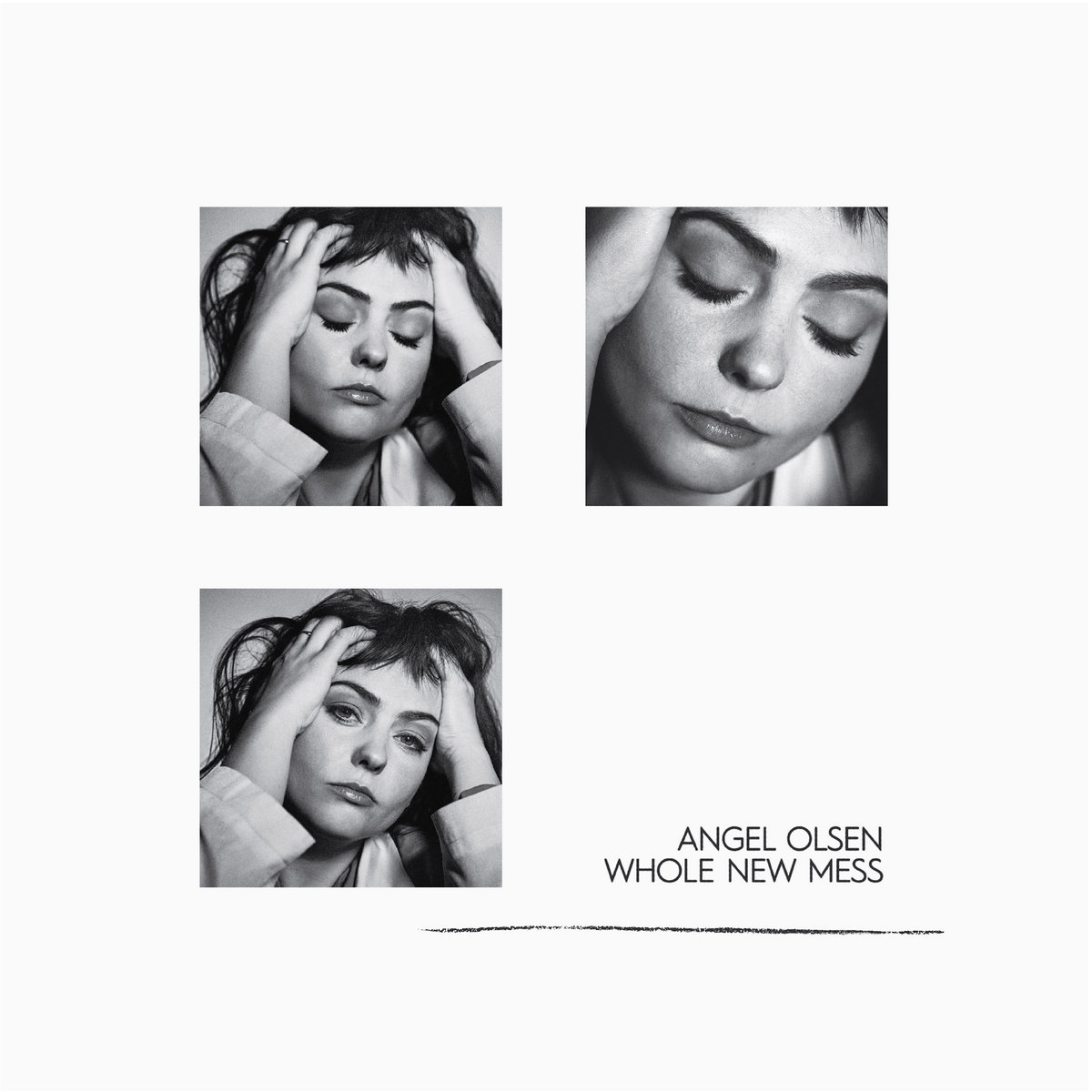National Music Reviews
Angel Olsen
Whole New Mess
Jagjaguwar
Street: 08.28
Angel Olsen = Marianne Faithful + Patsy Cline + Roy Orbison
The origin story of Angel Olsen’s new record, Whole New Mess, starts with writing under the Blue Ridge Mountains in North Carolina and recording isolated in the Pacific Northwest. This is where Olsen made skeletons of songs that would later be fleshed out with expansive instrumentation and calculated production to form her brilliant 2019 album, All Mirrors. This would prove to be a breakout record for Olsen, shooting her into the stratosphere of great modern singer/songwriters.
Now in the middle of a pandemic and a global initiative of self-isolation Olsen has returned to the skeletons of All Mirrors. The stripped-down songs of Whole New Mess almost sound like a whole new album. These songs birthed from heartbreak, loneliness and a renewed self-awareness are more alive and real when you get down to the marrow of the bones. Angel Olsen’s sad-song blues sounds better when they are left to roam in the empty rooms of a hollowed-out church with nothing but a guitar and an occasional organ to move dust around the floor like a sudden breeze. The songs sound more personal, honest and immediate, and Angel Olsen delivers them from a vulnerable place in her soul that connects with the heartache in all of us. She does it with a voice that can surround you in its brilliance to either comfort or strangle. On Whole New Mess, it is that voice that echoes up to the rafters and propels this record into its place as a stark, barren, lovesick masterpiece.
It was strange for me to review songs I was already very familiar with—songs I have absorbed for almost an entire year. The mathematical equation of these songs of Loss + Time = Perspective seems to be more impactful in a quieter place. The whole tone of the record is summed up at the end of the track “Summer,” delivered with a Lana Del Rey nonchalance: “And all those summer days were like a dream / Wake me from a restless sleep / Made me quiet, had me weak / And all the weight of all the world came rushing in.” Eventually, time heals all wounds, but in doing so it makes you a different person.
Olsen comes to this realization in the stunning “Lark Song”—“If only we could start again pretending we don’t know each other / I could not come back the same, this city’s changed / It’s not what it was back when you loved me.” This transformation and self-realization continues on the track “What It is (What It Is),” where Olsen sings, “It’s easy if you tell the truth / But knowing what it is, it’s not enough / And knowing that you love somebody doesn’t mean you ever were in love.”
With the exceptions of “‘Spring”’ and “‘Endgame,” all the songs from All Mirrors land on Whole New Mess with slightly altered titles. Two new tracks, the title track and “Waving, Smiling” are songs the late Patsy Cline would have murdered for. Both songs offer perspective: “Won’t be long now before its really showing / It’s every season where it is I’m going,” Olsen sings on the title track, tilting toward recovery; “When it all fades to black / I’ll be getting back on track.” Olsen also doubles down on “Waving, Smiling”: “Found me down / Turned right, right around, now baby I’m rising / How could you know where a heart should go? / You’re on your own when you are arriving.”
It’s just a lot of hyperbole when you attach the word “masterpiece” to something new—something time has yet to touch or test. With Whole New Mess, I have a feeling Olsen knew these songs were good. She already delivered them on the almost perfect All Mirrors. She must have known there was something special in the skeletons of these songs, something special enough to rattle the bones again on a brand new record. It takes a certain kind of courage as an artist to release different versions of the same songs only a year apart and pass it off as something new—Angel Olsen did just that with Whole New Mess. This is a record that quietly and loudly announces a talent ripe for the ages. Angel Olsen has arrived.
